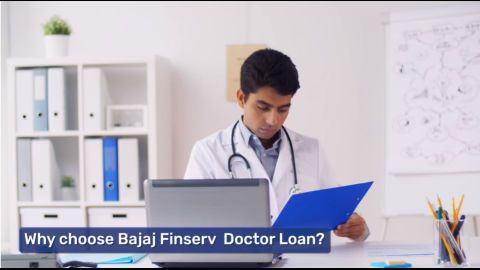Types of emergency medicine courses
A variety of course formats are available to cater to the diverse needs of learners at different stages of their careers.
- Certificate in Emergency Medicine: A short-term course that provides foundational knowledge and practical skills in emergency care. Ideal for newcomers or allied health professionals looking to specialise in emergency services.
- Diploma in Emergency Medicine: A more comprehensive programme covering clinical procedures, trauma management, and patient stabilisation. Often includes hospital-based training and is suitable for paramedics or doctors.
- Fellowship in Emergency Medicine: Tailored for experienced doctors who want to develop advanced skills and clinical leadership in emergency departments. These programmes often include rotations in ICUs and trauma centres.
- MD in Emergency Medicine: A full-time, three-year postgraduate degree providing in-depth academic and practical knowledge in emergency and critical care medicine. Recognised by medical councils, this is the highest formal qualification in the field.
- Online/Distance learning courses: These cater to working professionals who need a flexible learning schedule. While they may not provide hands-on training, they are effective for theoretical knowledge and continuing medical education.
Topics covered in an emergency medicine course
- Critical care: Management of patients with life-threatening conditions in emergency settings
- Trauma care: Treatment of injuries resulting from accidents, falls, or other traumatic events
- Resuscitation: Methods for handling cardiopulmonary arrest and other critical emergencies
- Paediatric emergencies: Specialised approaches for treating infants and children in urgent situations
- Emergency procedures: Training in essential interventions such as intubation, venous access, and wound care
- Medical emergencies: Focused management of acute conditions, including chest pain, cardiac events, and neurological crises
Duration of emergency medicine courses
The time commitment required varies significantly by course type and qualification level. Here's an overview:
| Course type |
Duration |
| Certificate course |
6 months to 1 year |
| Diploma course |
1 to 2 years |
| Fellowship programme |
1 to 2 years |
| MD in Emergency Medicine |
3 years |
| Online/Part-time programmes |
6 months to 1 year (flexible) |
Certificate and online courses are often modular, allowing for self-paced learning. In contrast, diploma and MD programmes require full-time academic and clinical engagement.
Fees for emergency medicine courses
The cost of Emergency Medicine education depends on the duration, institution, and course format. Below is a general fee range to guide prospective students:
| Course type |
Approximate fees |
| Certificate course |
Rs. 50,000 – Rs. 1,50,000 |
| Diploma course |
Rs. 1,00,000 – Rs. 3,00,000 |
| Fellowship programme |
Rs. 1,50,000 – Rs. 4,00,000 |
| MD in Emergency Medicine |
Rs. 10,00,000 – Rs. 25,00,000 |
| Online/Part-time programmes |
Rs. 30,000 – Rs. 1,20,000 |
Private institutions and international collaborations may charge higher fees. Scholarships, subsidies, and instalment-based payments are sometimes available depending on the provider. If you’re considering financing options, don’t forget to check your pre-approved doctor loan offer, it might help cover a significant part of your course fees with minimal paperwork.
Choosing the right emergency medicine course
- Entry-level roles (EMT, technician): Opt for certificate, diploma, or BSc programmes. These usually require a 10+2 science background.
- Specialised training (doctors): Pursue a PG Diploma, Fellowship, or MD in Emergency Medicine. These programmes require an MBBS degree and provide advanced clinical training.
- Continuing education (all professionals): Enrol in short-term courses such as ACLS (Advanced Cardiac Life Support) or ATLS (Advanced Trauma Life Support) to keep skills updated and certifications valid.
Career scope after emergency medicine courses
Completing an Emergency Medicine course opens the door to diverse roles in both clinical and non-clinical environments. The scope is wide and growing with the healthcare sector's expansion.
- Emergency physician: Work in hospital ERs managing trauma, cardiac events, poisonings, and acute illnesses.
- Trauma care specialist: Deliver critical care to accident victims and handle emergency surgical procedures.
- Pre-hospital emergency responder: Serve with ambulance services or emergency medical response units.
- Critical care support: Work closely with ICUs in ventilator and advanced life support management.
- Academic roles: Teach Emergency Medicine to medical students and train new paramedics.
- NGOs and Global Health Organisations: Offer emergency medical support during natural disasters or humanitarian crises.
- Hospital administration: Use clinical expertise to manage ER operations and coordinate multi-disciplinary emergency teams.
With experience, professionals in this field may also take up leadership positions in trauma centres, hospitals, and health missions across India and abroad.
Conclusion
Emergency Medicine is a high-impact and rewarding field that sits at the frontline of healthcare. Whether you're starting your medical career or seeking to expand your clinical expertise, these courses provide the foundation for a vital role in saving lives. For doctors aiming to upskill or invest in specialised education, a doctor loan or professional loan offers a practical solution to cover course fees and other related expenses, helping you advance without financial hurdles.





